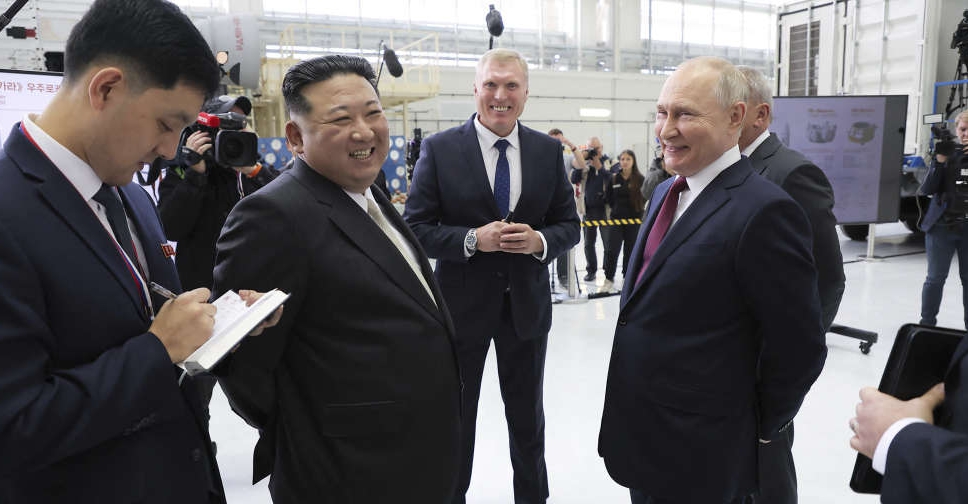
North Korean leader Kim Jong Un invited Russian President Vladimir Putin to his country during their talks in Russia, state media reported on Thursday, with Kim expected to continue his trip with visits to military production facilities.
Putin accepted the invitation, state news agency KCNA said, without mentioning when a visit might take place.
Kim told Putin the meeting in Russia's Far East brought bilateral ties to a new level, and expressed his willingness to foster stable, future-oriented relations for the next 100 years, KCNA said.
The invitation from Kim for Putin to visit the North came at the end of a reception hosted by the Russian president after they toured the Vostochny Cosmodrome space centre and held talks on bilateral ties and boosting cooperation, KCNA said.
"At the end of the reception, Kim Jong Un courteously invited Putin to visit the DPRK at a convenient time," KCNA said, referring to the Democratic People's Republic of Korea, North Korea's formal name.
"Putin accepted the invitation with pleasure and reaffirmed his will to invariably carry forward the history and tradition of the Russia-DPRK friendship," it said.
On Wednesday, Kremlin spokesman Dmitry Peskov had said there was no plan for Putin to visit Pyongyang.
The two leaders agreed to further strengthen strategic and tactical cooperation in the face of the "military threats, provocations and tyranny of imperialists," KCNA said.
Kim was briefed on technical details of Russian space vehicles during his visit to the cosmodrome, but there was no mention of any arms supplies, trade of weapons or technical assistance over weapons programmes.
After the reception, Kim "left for his next destination," KCNA said, without elaborating. Kim had arrived in the Russian Far East early on Tuesday by special train and continued north for the summit with Putin at the cosmodrome.
US and South Korean officials have expressed concern that Kim could provide weapons and ammunition to Russia, which has expended vast stocks in more than 18 months of war in Ukraine. Moscow and Pyongyang have denied such intentions.
The US State Department said the Biden administration "won't hesitate" to impose additional sanctions on Russia and North Korea if they conclude any new arms deals.
It was "troubling" that Russia is talking about cooperation with North Korea on programmes that potentially would violate UN Security Council resolution, State Department spokesman Matthew Miller said after the summit.
South Korea's unification minister, Kim Young-ho, who is in charge of relations with the North, expressed "deep concerns" over military cooperation and possible arms transactions between Pyongyang and Moscow, saying the two countries were apparently continuing to pursue "some kind of" a military deal.
"We once again urge Russia and North Korea to halt illicit acts that cause their isolation and regression, and follow international rules including the Security Council resolutions," the minister told reporters.
On Wednesday, Putin gave numerous hints that military cooperation was discussed but disclosed few details. Defence Minister Sergei Shoigu attended the talks. The Kremlin said sensitive discussions between neighbours were a private matter.





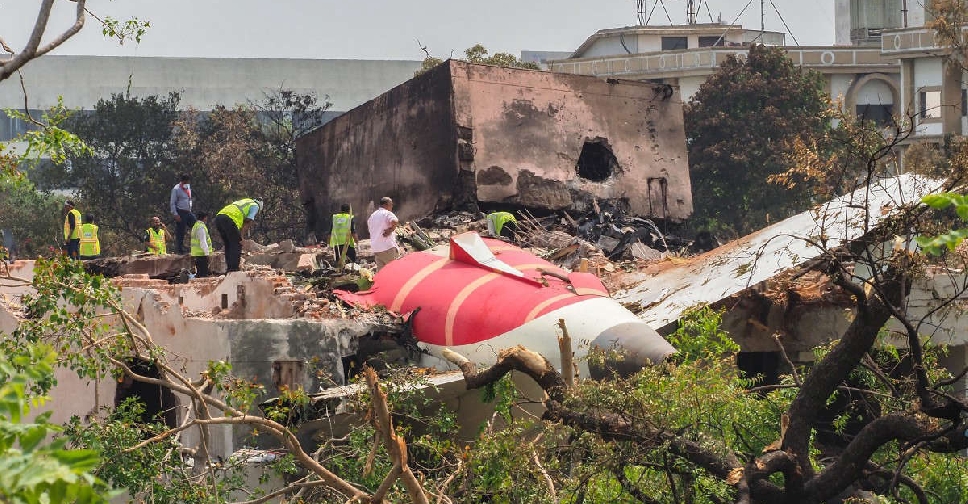 Air India crash report shows pilot confusion over engine switch movement
Air India crash report shows pilot confusion over engine switch movement
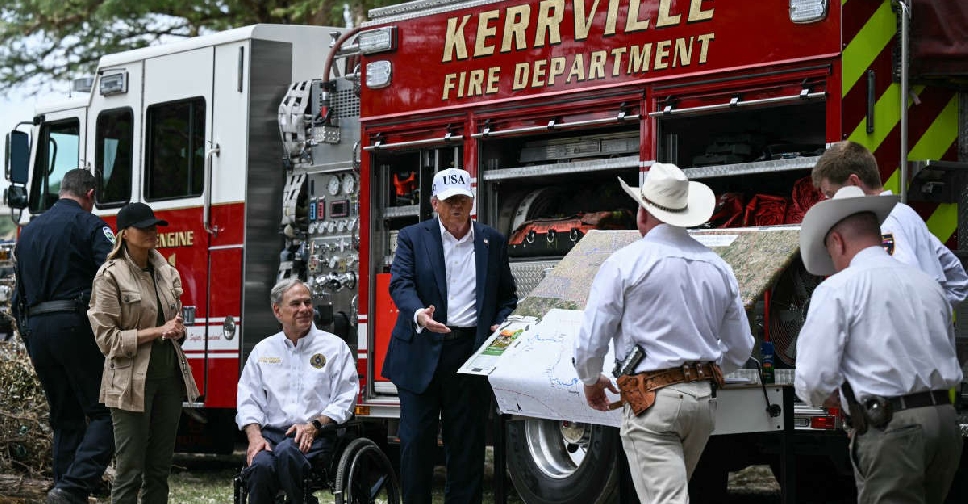 Trump visits Texas flood zone, defends government's response
Trump visits Texas flood zone, defends government's response
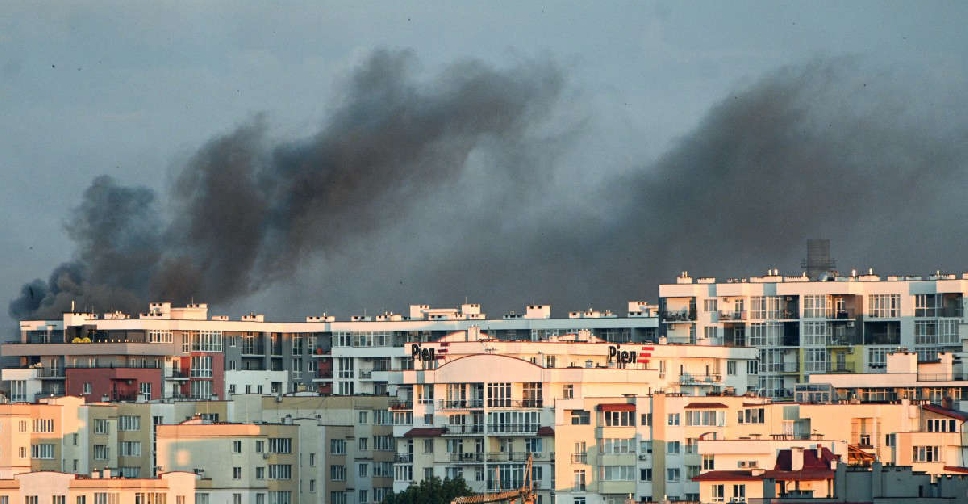 Russia attacks west Ukraine with drones and missiles
Russia attacks west Ukraine with drones and missiles
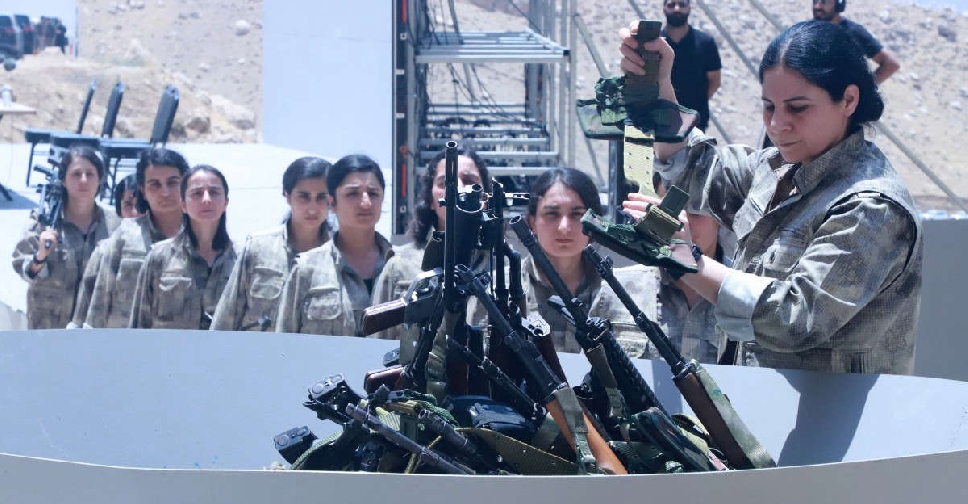 PKK fighters burn weapons in Iraq to start disarmament
PKK fighters burn weapons in Iraq to start disarmament

